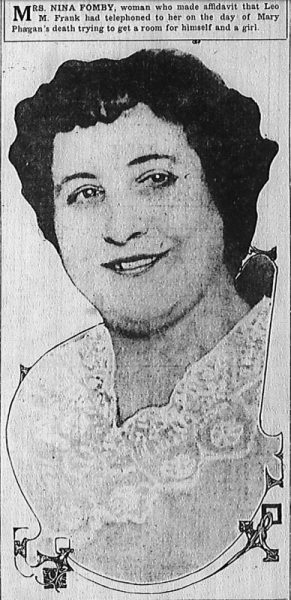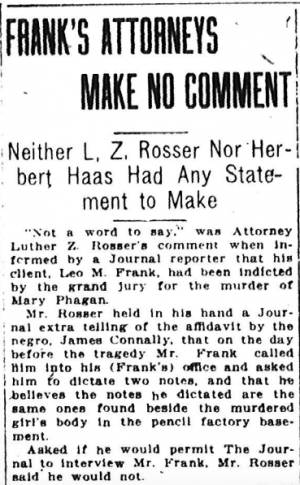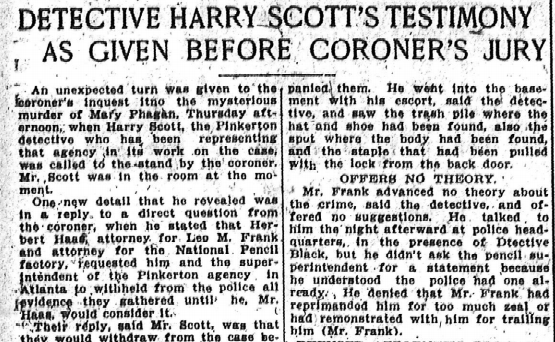Another in our series of new transcriptions of contemporary articles on the Leo Frank case.
Atlanta Constitution
August 1st, 1913
NEW TESTIMONY GIVEN AT TRIAL OF LEO M. FRANK BY R. B. BARRETT
Machinist at Pencil Factory Tells Jury of Discovery of Murdered Girl’s Pay Envelope and of Strands of Hair Near Her Machine in Metal Room on Second Floor.
HENRY [sic] SCOTT PUZZLES BOTH SIDES OF CASE BY EVIDENCE THURSDAY
E. L. Holloway, Who Swore in Affidavit That Elevator Was Closed on Saturday, the Day of the Murder, Admits on Stand That He Was Mistaken—“I’ve Been Trapped,” Cries Dorsey.
The first piece of new testimony of any importance which has developed since the beginning of the Leo M. Frank trial came Thursday morning, when R. B. Barrett, a machinist employed at the National Pencil factory, testified that he had found what was supposed to be Mary Phagan’s pay envelope near her machine in the metal room. Up to this time the matter of the pay envelope had been a complete mystery. Barrett also testified to having discovered blood stains on the floor near her machine, and a strand of hair on the machine. The blood stain had been wiped over with some kind of white preparation.
The whole gist of Solicitor Dorsey’s questioning was to prove that the murder was committed on the second floor. The testimony of this witness and others seemed to bear out this contention.
Continue Reading →

 Another in
Another in  Another in
Another in  Another in
Another in  Another in
Another in  Another in
Another in  Another in
Another in 


